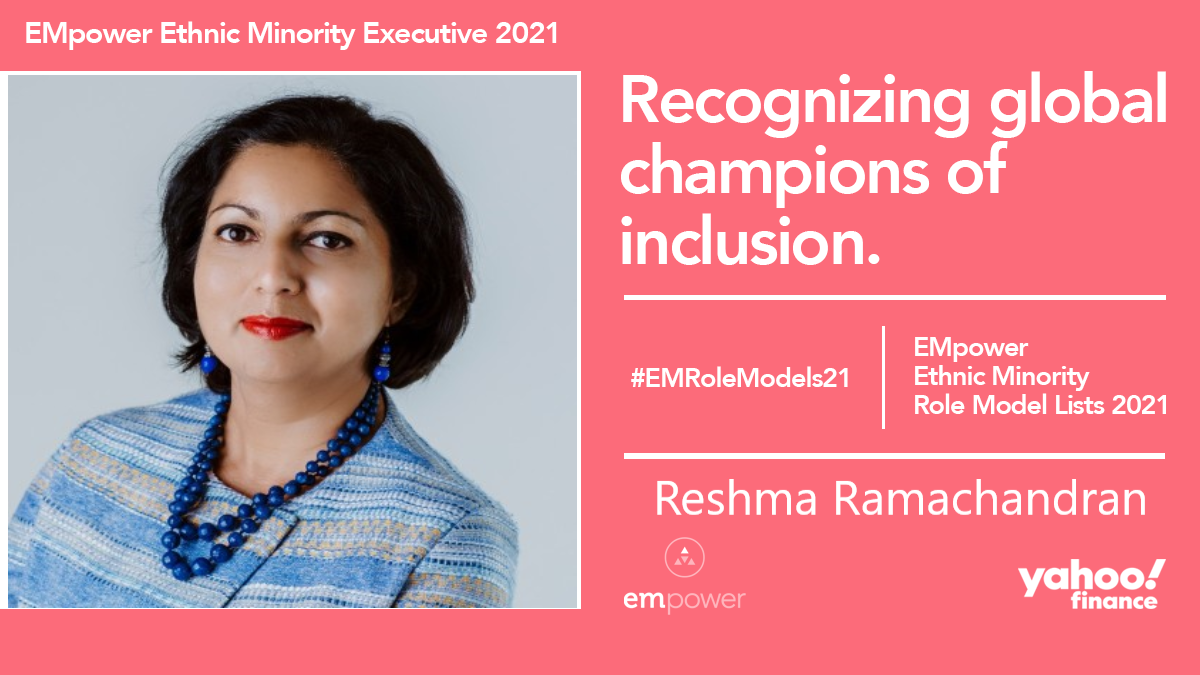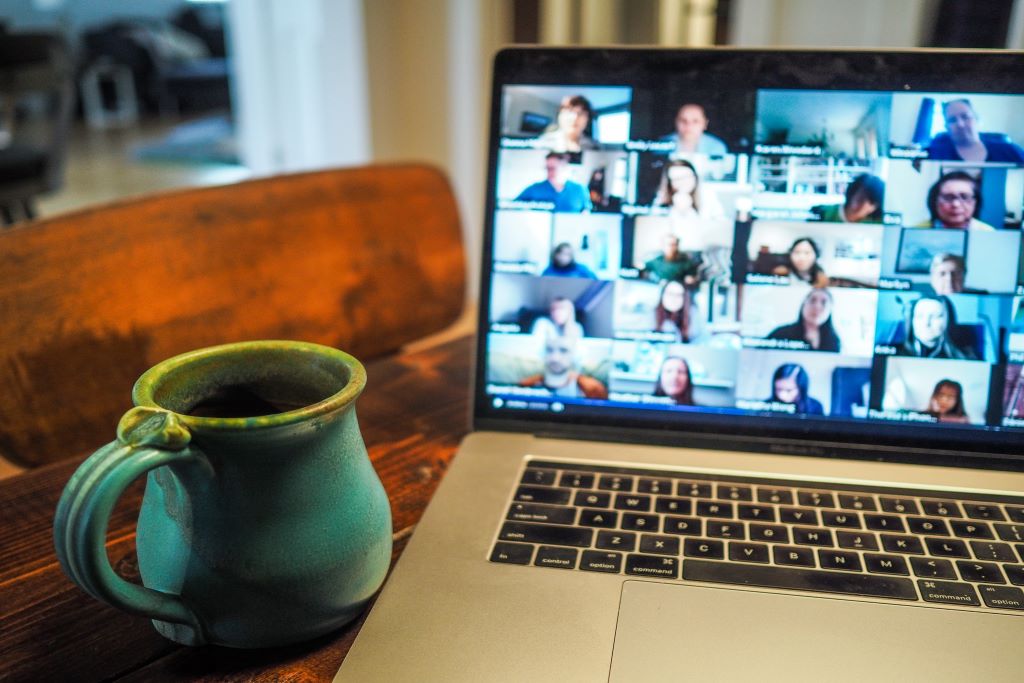When Reshma Ramachandran landed on an offshore oil platform for one of her transformation roles, the first thing people noticed was her ethnicity and her gender. Because of her Indian heritage, her former colleagues thought, Ramachandran wouldn’t have the confidence or courage to speak up.
“I did live up to that for a few days, because I am really not an aggressive person and I believe in engaging with people on a change journey rather than a top-down approach,” Ramachandran, now a Senior Vice President & Group Head of Transformation at The Adecco Group, said.
Her initial days on that project were tough: no one believed she had the expertise to do her job, and because so many people put a label on her right away, she never had the chance to show her abilities. But with persistence and resilience, she gradually helped set the team up for success – and moved on to her next role.
Ramachandran, who was named to the 2021 EMpower Ethnic Minority Role Model List this month, said there have been several instances where she has been underestimated or overlooked because of her background and her quiet demeanour.
The Adecco Group executive, who will mark 20 years in the corporate world this summer, says that has been the case since she left her home country of India.
“Moving out of my home country 20 years back has also meant that I am never in a room or group where there is anyone who looks like me or understands my background,” Ramachandran said. “Being an ethnic minority has always meant that typically my stereotypical image precedes my work or potential and that I start sub-zero most times, having to work at least 3 times harder to earn a seat at the table.”
Being named to the 2021 EMpower Ethnic Minority Role Model List marks an important moment: a reminder of her roots, and the wings that she can give other ethnic minority women, to help them thrive in a world that does not look like them. That’s one of the reasons she celebrates her success: women and ethnic minorities need to see role models that look like them to help them succeed.
“If you can’t see her, you can’t be her. Role models are very important in shaping your dreams and ambitions,” Ramachandran said. “Hence the importance of having role models that look like you, think like you and have a background like yours.”

Paying It Back
Still, Ramachandran said that she had several great mentors during her career. Throughout her 20 years in the corporate world, she has worked across 13 countries and several high-profile companies, like Accenture management consulting, Alstom Power, and ABB, to help them transform.
It’s the mentors along the way that inspired her to form her own informal group for women of colour in the DACH region (Germany, Austria and Switzerland), where she personally mentors and coaches around 30 women in order to help them progress in their careers.
A mentor or coach can play a huge role in shaping someone’s future, she said.
“When I moved to the Western world from my home country, there were so many things I did not know about,” Ramachandran said. “And what I do at the moment is just take time to coach and mentor not only ethnic minority women but generally any women, to help them overcome their self-limiting beliefs. What holds us back is never external, its always internal to us and its invariably our own self limiting beliefs.”
It’s not just a one-way channel, though, Ramachandran said. The leader has been taking advantage of reverse mentoring as well, and learning from the people she helps mentor.
Building The Diverse And Inclusive Workforce Of The Future
Building a more diverse and inclusive workforce comes down to one sentence: if you want more diversity, be more inclusive, Ramachandran said.
“In the world we live in, where innovation is the key to success of an organization, diversity of thoughts plays such a crucial role,” Ramachandran said. “If we all would think alike, we would never challenge each other and without challenging the status quo, we would never innovate.”
One way to do this? More open conversations about race and gender – and the lack of privilege that comes with it. If we ignore the problems, then we will never make the effort to change, Ramachandran said. Part of that is understanding our biases.
“And with acceptance comes the bigger onus of understanding our biases,” she said. “We will never be unbiased, however we can understand our biases and not let it get in the way of rational decision making.”
It’s so crucial to see beyond differences and instead look at each individual for their strengths, Ramachandran said. It’s about talent, not labels.
“We have the possibility to achieve anything we want to,” Ramachandran said. “What is important is to understand that the power lies within us and only us and let not gender or race define who we are.”



